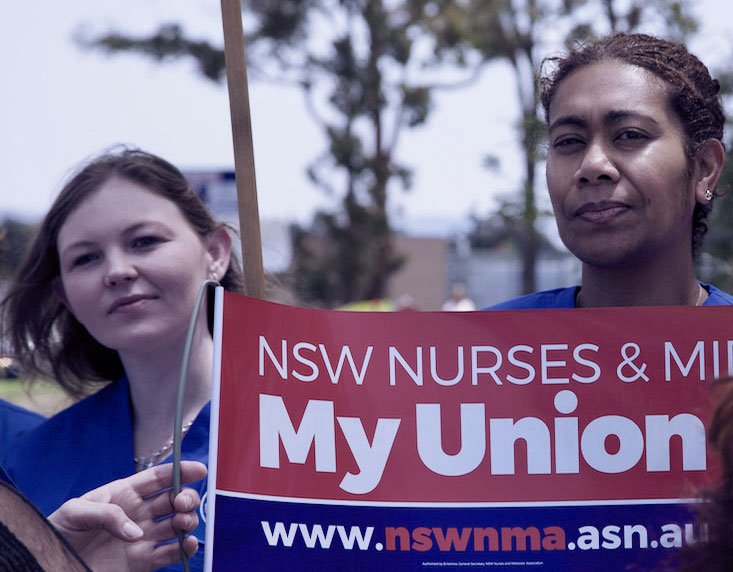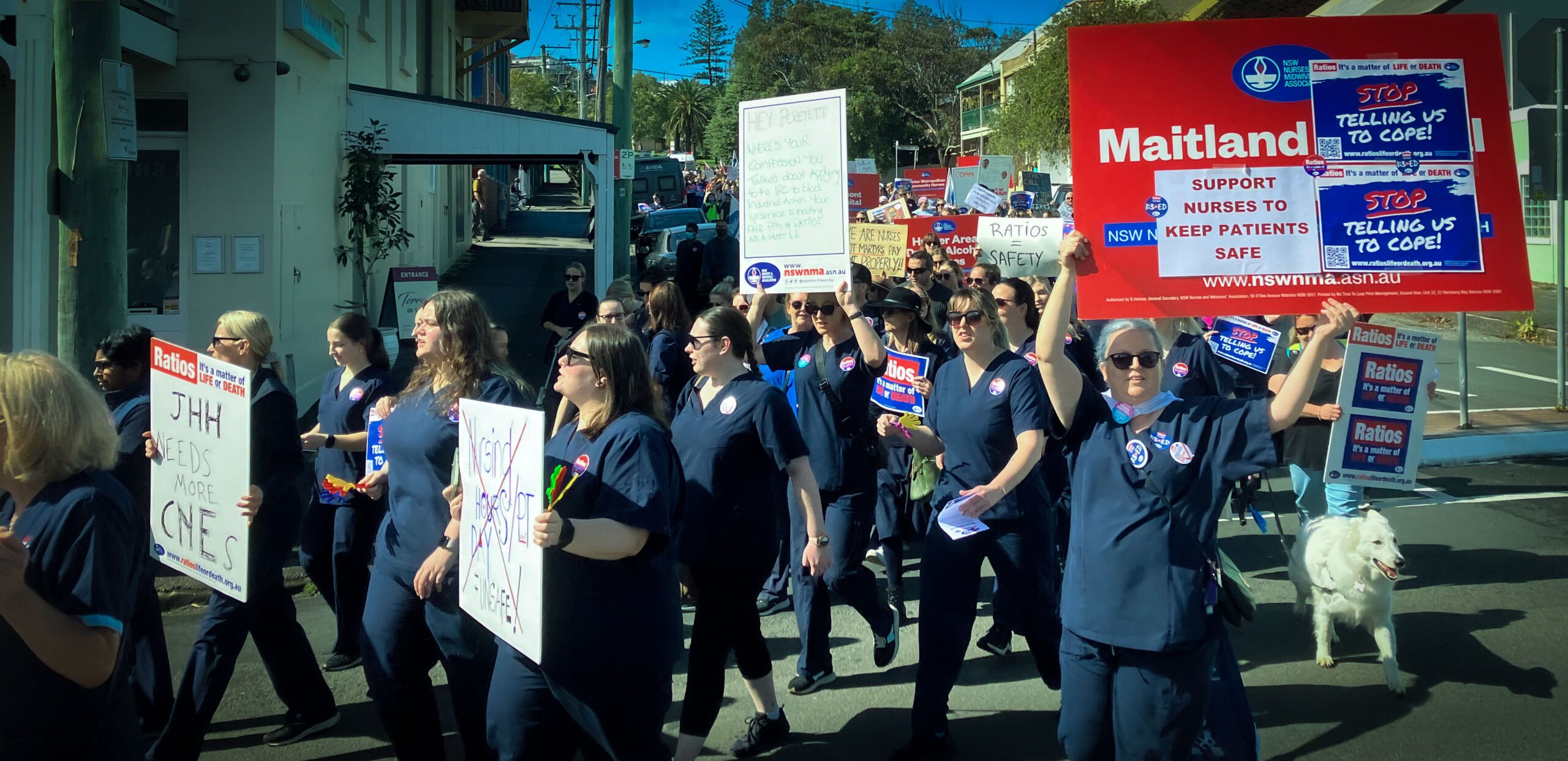Nurses and midwives welcome last night’s night duty experience for politicians. Proposed laws will stop nurses and midwives putting their night duty case
Hopefully last night’s experience of “night duty” will help convince the NSW parliament that the O’Farrell Government’s attack on the independence of the NSW Industrial Relations Commission (NSW IRC) is not in the public interest, the NSW Nurses Association (NSWNA) said today.
NSWNA general secretary, Brett Holmes, said nurses will be pleased these politicians got a small taste of working through the early hours of the morning, because one of the first outcomes of these proposed laws, if passed by the parliament, is likely to be the canceling of an arbitration case currently before the NSW IRC to improve the pay of NSW nurses and midwives on night duty.
The NSW Legislative Council sat until 3.30am today debating the O’Farrell Government’s Industrial Relations Amendment (Public Sector Conditions of Employment) Bill 2011, which is aimed at restricting the independence of the NSW IRC and its role in settling unagreed matters between the State Government and its workforce. The debate resumed this morning.
Mr Holmes said the nurses’ night duty case, currently before the NSW IRC, highlights just how serious an attack on nurses’ and midwives rights at work this legislation is.
“The night duty case also exposes the O’Farrell Government claim that somehow the previous government and the NSW IRC have been a soft touch for public sector workers and their unions.
“Back in 2008 the NSWNA negotiated a new wages and conditions agreement with the then State Government, but a couple of items remained unsettled. So the agreed matters were voted on and accepted and the unsettled matters, including new night duty penalty rates for nurses and midwives, went to the independent umpire – the NSW IRC – for arbitration. That case started in May 2009. The previous government opposed our claim, but acknowledged our right to go to the IRC. The IRC, in turn, has been very thorough in examining the NSWNA’s solid and extensive evidence.
“The difference is, we had the right to run an IRC case against the employer, in this case the State Government, to make our point. The O’Farrell Government proposals remove that right and even allow the Government to close down this case, which has already been substantially heard and is now awaiting further research, for which a NSW Health contract has been signed.
“The point is, night duty penalty rates for NSW public hospital nurses and midwives have not increased since 1975 and the NSWNA does not believe the current rate of 15 per cent fairly and adequately compensates NSW nurses and midwives for the social, domestic and health disadvantages experienced when they work night shift.
“That rate is also way behind the rate now paid to nurses and midwives by other States and Territories. This contributes to the ongoing problem of retaining and recruiting nurses and midwives in the NSW public hospital system. Mandatory shift work is one reason nurses give for leaving nursing and midwifery. The current rates across the country are:
New South Wales 15%
South Australia 20.5
Queensland 20%
Victoria 20% – 26%
Northern Territory 22.5%
ACT 22.5%
Tasmania 25%
Western Australia 35%
“These rates also make a mockery of the O’Farrell Government’s ongoing suggestions that NSW public sector workers are on some sort of gravy train, propped up by the NSW IRC.
“Various studies in recent years indicate shiftworkers have increased risks of serious health problems including breast cancer, cardio-vascular disease, gastro-intestinal disorders and reproductive health problems. Other studies show a range of social disadvantages arising from working night shifts or rotating shifts. These include family disruption, social dislocation and isolation, and elevated rates of marital breakdown.
“The problems experienced by nurses and midwives working night shifts or rotating rosters also include poor sleep, a range of health and mood problems, and significant social and family disruption. For these reasons most nurses and midwives are reluctant to work night shift and the difficulties associated with rostering in these circumstances should be obvious.
“The NSWNA understands and supports the general principle that if something is detrimental to a person’s health and wellbeing it should be removed. However, night duty is not an optional extra in the hospital system. As a ‘necessary evil’ then increased financial compensation for night duty is a legitimate remedy, as it helps reduce or remove stresses in other aspects of the person’s life, thus potentially reducing the overall impact of night duty.
“The NSWNA ran a strong initial case, providing considerable evidence on these detrimental impacts of night duty on individuals and the virtue of improved night duty penalty rates.
“However, in September 2009 the NSW IRC, in its initial decision, did not see fit, at that stage, to provide public hospital nurses and midwives with an increased penalty rate for night duty. It wanted more research done, by the NSWNA and Health Department, on the impact of night duty on nurses and midwives before it again considered an increased penalty rate for night duty. So much for the NSW IRC being a soft touch. And can you imagine the problems involved with trying to make such a case to politicians alone,” Mr Holmes said.
Contact details
John Moran
Media Liaison
Ph: 0410-603 278







